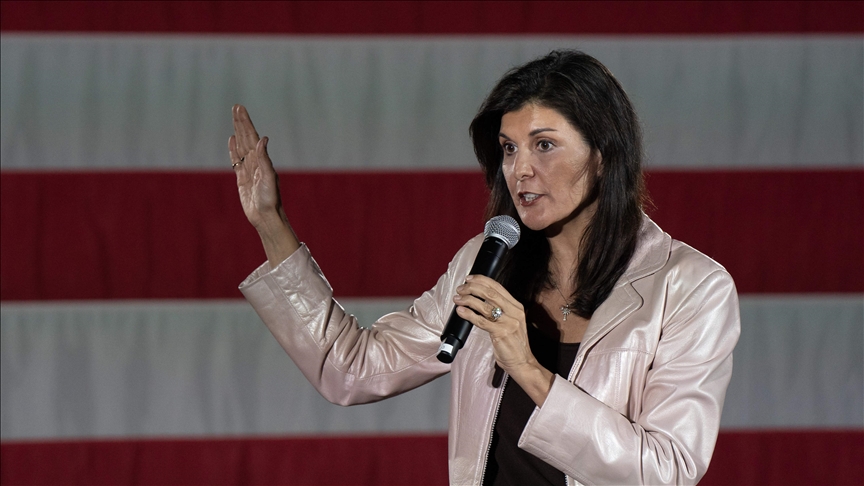In a recent appearance on the “Breakfast Club” radio show, Republican presidential candidate Nikki Haley stirred controversy by expressing the opinion that if Texas were to decide to secede from the United States, it has the right to do so. While downplaying the likelihood of such a scenario, Haley argued that states possess the authority to make decisions aligned with the will of their people.
During the radio interview, host Charlamagne Tha God raised the issue of secession in the context of Texas’ ongoing disputes with the Biden administration over border security. In response, Haley asserted, “I think states have the right to make the decisions that their people want to make.” She continued, “If Texas decides they want to do that, they can do that. If that whole state says, ‘We don’t want to be part of America anymore’ — I mean, that’s their decision to make. But I don’t think government needs to tell people how to live, how to do anything. I mean, I think that we need to let freedom live.”
While Haley acknowledged the theoretical right of states to secede, she emphasized the improbability of Texas taking such a drastic step. “But let’s talk about what’s reality. Texas isn’t going to secede. That’s not something that they’re going to do,” she stated. Despite the assertion of states’ rights, Haley tempered her remarks with a pragmatic assessment of the situation.

Read more:
- No Trump Support: GOP Candidate Mazi Pilip in NY Won’t Back Trump if Criminally Charged
- Governor Hochul Signs Bill Redefining Rape in New York
- California Gun Control Law Back in the Legal Spotlight
- Iran Bombing Urged by Hawks, Barbara Lee Stands Firm on Peace
The concept of states’ secession has historical roots in the United States, notably culminating in the Civil War. While the US Constitution does not explicitly prevent a state from leaving the union, the issue was largely settled by the Union’s victory over the Confederates and the 1869 Supreme Court ruling in Texas v. White. The court affirmed that states cannot unilaterally secede from the US, reinforcing the indivisibility of the nation.
Nikki Haley’s comments on secession have ignited a broader conversation about states’ autonomy and the limits of federal authority. Critics argue that Haley’s stance, while invoking the principle of states’ rights, disregards the legal precedent set by historical events and judicial rulings. The implications of her remarks extend beyond Texas, raising questions about the role of states in shaping their destinies within the federal framework.
The issue of secession remains a contentious topic, with divergent opinions on the balance between state autonomy and the overarching authority of the federal government. Haley’s position reflects a broader sentiment within certain political circles that emphasizes individual freedoms and state sovereignty. However, legal experts and historians contend that the legal and constitutional framework established by past events establishes the United States as an indivisible entity.
As Nikki Haley navigates the complexities of the political landscape in her presidential bid, her remarks on secession contribute to ongoing debates about the scope of states’ rights. While the idea of states breaking away from the union may remain a remote possibility, the discourse sparked by Haley’s comments sheds light on the enduring tension between federal authority and states’ autonomy in the American political landscape. As the nation grapples with contemporary challenges, the historical context of secession serves as a reminder of the enduring principles that shape the United States.

